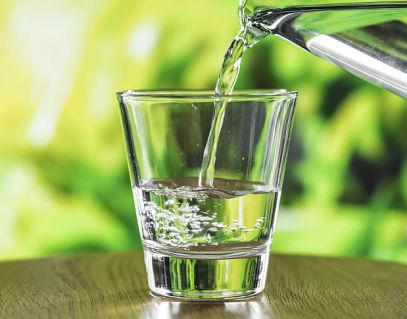Purified Water for Babies: Everything You Need to Know

Even though all water looks the same, one must be careful while giving them to children (especially babies). Did you know that there are many types of water out there, some of which could result in harmful repercussions in your child? That is correct, not all water is created equal. It is therefore important to pay attention to the literature and learn about what’s good and what’s bad for your baby.
Avoiding Tap Water
One must be aware of the chemicals and minerals that are present in your drinking water. When it comes to babies, chances are you’d be using the water for baby formula, or if the baby is over 6 months old, perhaps just helping them quench their thirst. The first lesson in this article is to keep your baby away from tap water. Purified water is always the way to go for babies, but even so, some people debate about the exposure towards tap water, which could build up their immunity. This is a false rumor and should not be listened to, as children (especially babies) who have been given tap water have been exposed to dangerous chemicals that their bodies are not developed to sustain.
In simple words, tap water contains chemicals and possibly contaminants that purified water does not. A baby’s organs are not capable of filtering out these contaminants like an adult can, pound for pound. Additionally, tap water sources are usually treated with fluoride, which is yet another chemical that poses a threat to babies.
Keep Away from Fluoride
There are various concerns that arise from exposing your baby to high levels of fluoride. Some of these risks include enamel fluorosis, which can harm developing milk teeth. Fluorosis is not a disease per se, but it can lead to discoloration on the enamel, and effect permanent teeth in the future as well.
Even though fluoride is an important chemical required by the human body, the truth is that an infant receives the right amount of fluoride his/her body can take through the powdered infant formula. Therefore, it is not advisable to provide them with added levels of fluoride.
Purified Water to the Rescue!
When it comes to your baby’s life, you must sought after the safest option to keep them safe. Purified water for babies is the best option there is to provide a baby; it is high quality, fresh-tasting water that is not only safe to use for the baby’s formula, but also fine to give them (provided they are above 6 months of age). Not only does purified water help maintain the flavor of the formula, but it also helps protect their developing teeth, and in turn, their health.
Keep in mind that purified water goes through an exhausting process of filtration to remove or reduce the chemical presence (such as chlorine), heavy metals (like lead), and oftentimes, bacteria. Since it doesn’t contain fluoride, you can consider it the healthiest option out there for your baby!
Is Boiling Synonymous with Purifying?
A common misconception is that any type of water can be purified simply by boiling it. But this is not always the case. For options other than tap water, it is always best to have your water tested before including it in your baby’s diet to ensure it is safe for your baby to consume. A common solution most people find is to boil the well water- but mind you, this is not a good idea. Well, water contains many minerals, like nitrates or iron, which doesn’t boil off. In fact, boiling this water can actually increase the concentration of these minerals. Therefore, stick with purified water, and as far as you can, steer clear from well water for your baby’s formula.
What About Bottled Water?
If you are not up for using tap water, an option that many parents choose today is purchasing bottled water. There are many arguments about how this is harmful to infants, but there are many safe bottled water options for babies available in markets all around the country. For instance, “Nursery Water” is safe for babies to consume. They have been marketed specifically for babies. Additionally, bottled water that has low-fluoride levels and labeled as purified, demineralized, distilled, or deionized is a safe option.








